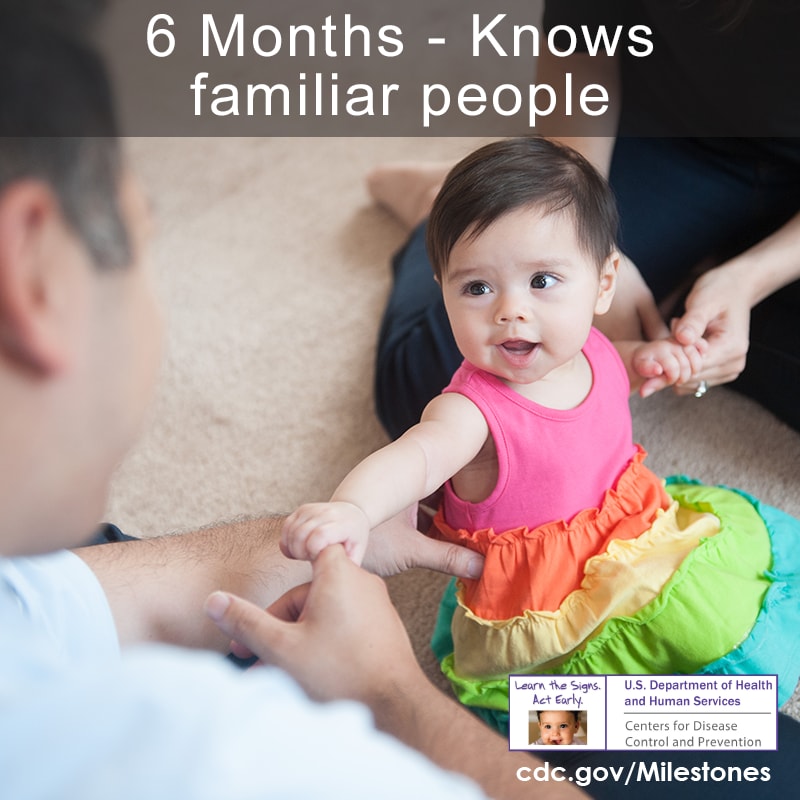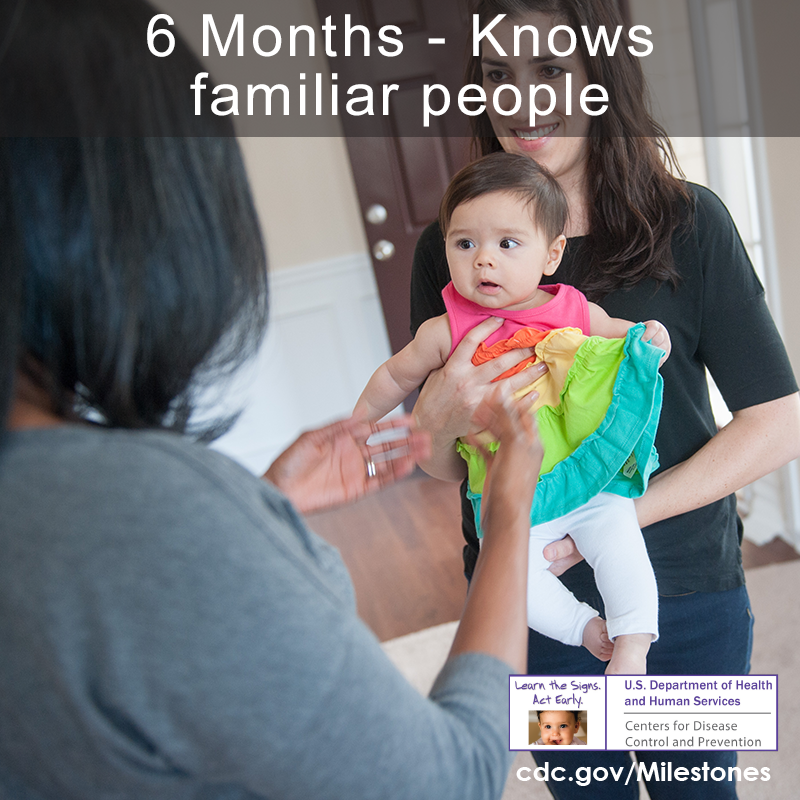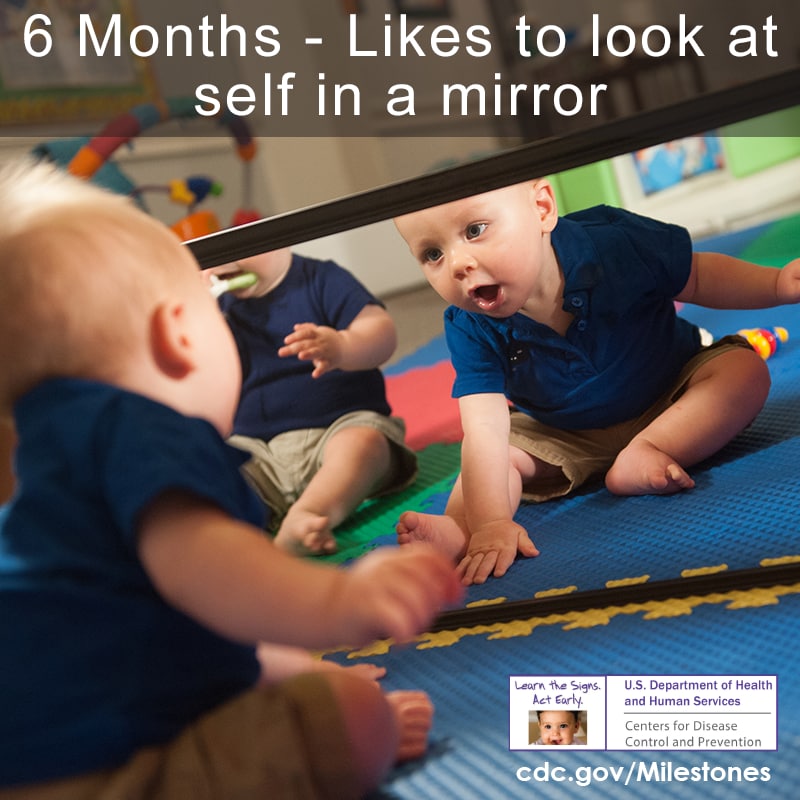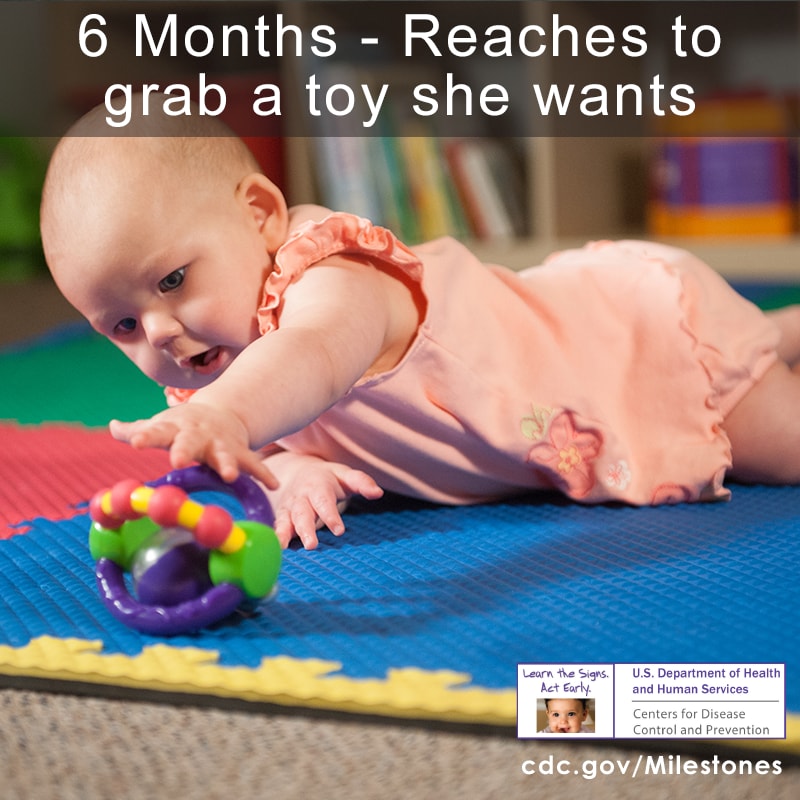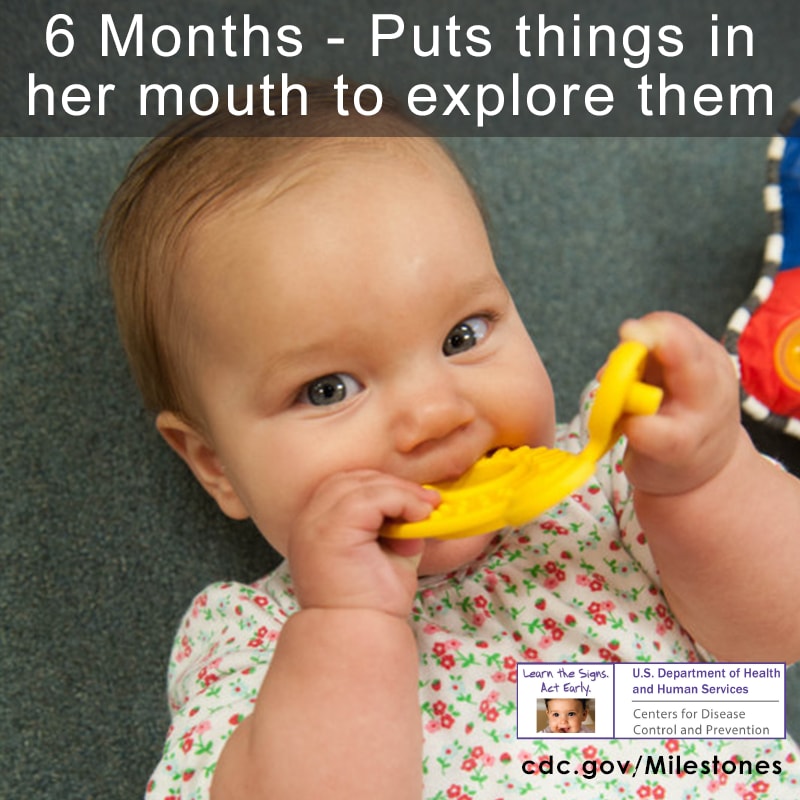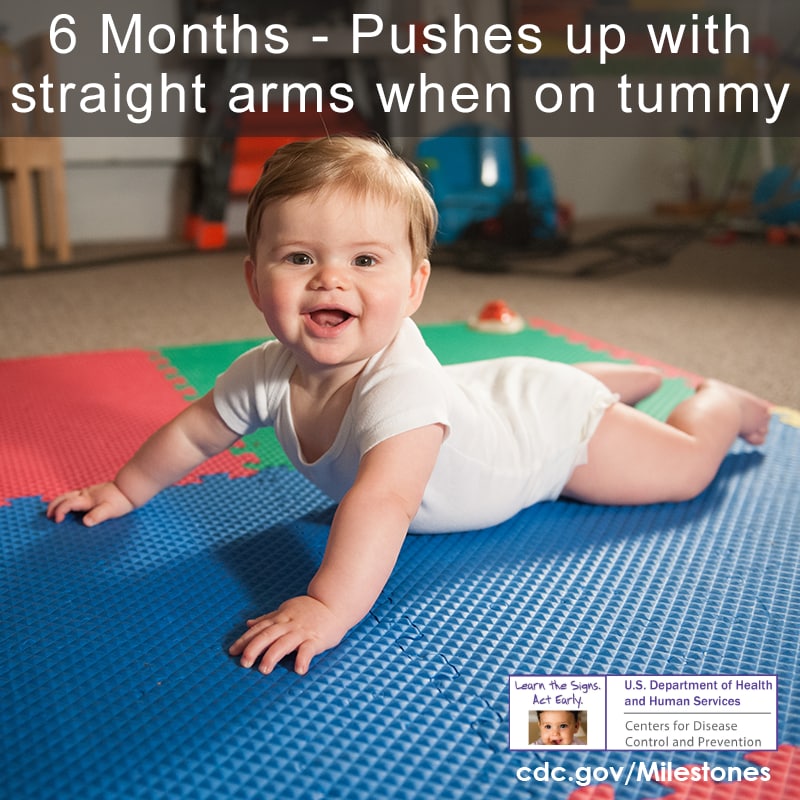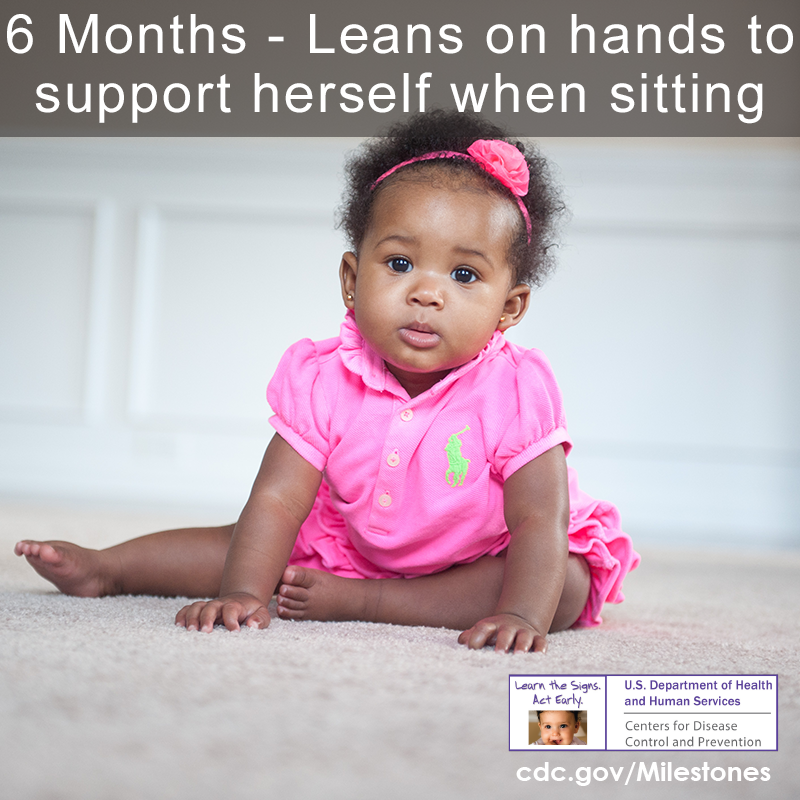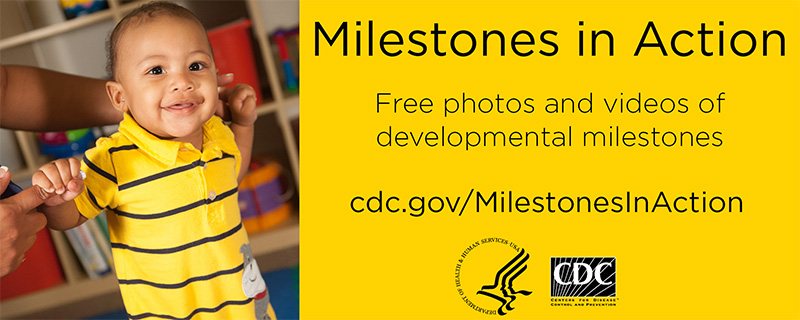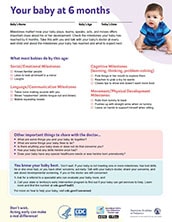Important Milestones: Your Baby By Six Months
CDC’s milestones and parent tips have been updated and new checklist ages have been added (15 and 30 months). For more information about the updates to CDC’s developmental milestones, please review the Pediatrics journal article and these important key points.
How your child plays, learns, speaks, acts, and moves offers important clues about your child’s development. Developmental milestones are things most children (75% or more) can do by a certain age.
Check the milestones your child has reached by 6 months by completing a checklist with CDC’s free Milestone Tracker mobile app, for iOS and Android devices, using the Digital Online Checklist, or by printing the checklist [755 KB, 2 Pages, Print Only] below.
“Learn the Signs. Act Early.” materials are not a substitute for standardized, validated developmental screening tools.
What most babies do by this age:
Social/Emotional Milestones
Language/Communication Milestones
- Takes turns making sounds with you
- Blows “raspberries” (sticks tongue out and blows)
- Makes squealing noises
Cognitive Milestones (learning, thinking, problem-solving)
- Puts things in her mouth to explore them

- Reaches to grab a toy she wants

- Closes lips to show she doesn’t want more food
Movement/Physical Development Milestones
Other important things to share with the doctor…
- What are some things you and your baby do together?
- What are some things your baby likes to do?
- Is there anything your baby does or does not do that concerns you?
- Has your baby lost any skills he/she once had?
- Does your baby have any special healthcare needs or was he/she born prematurely?
Concerned About Your Child’s Development?
Act Early.
You know your child best. Don’t wait. If your child is not meeting one or more milestones, has lost skills he or she once had, or you have other concerns, act early. Talk with your child’s doctor, share your concerns, and ask about developmental screening.
If you or the doctor are still concerned:
- Ask for a referral to a specialist who can evaluate your child more; and
- Call your state or territory’s early intervention program to find out if your child can get services to help. Learn more and find the number at cdc.gov/FindEI.
For more on how to help your child, visit cdc.gov/Concerned.
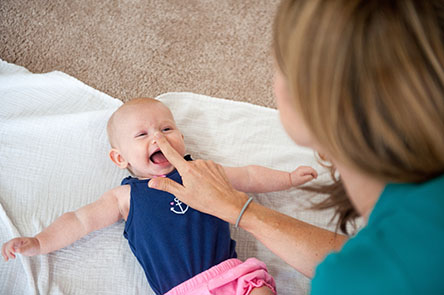
As your baby’s first teacher, you can help his or her learning and brain development. Try these simple tips and activities in a safe way. Talk with your baby’s doctor and teachers if you have questions or for more ideas on how to help your baby’s development.
- Use “back and forth” play with your baby. When your baby smiles, you smile; when he makes sounds, you copy them. This helps him learn to be social.
- “Read” to your baby every day by looking at colorful pictures in magazines or books and talk about them. Respond to her when she babbles and “reads” too. For example, if she makes sounds, say “Yes, that’s the doggy!”
- Point out new things to your baby and name them. For example, when on a walk, point out cars, trees, and animals.
Special acknowledgments to the subject matter experts and others who contributed to the review of data and selection of developmental milestones, especially Paul H. Lipkin, MD, Michelle M. Macias, MD, Julie F. Pajek, PhD, Judith S. Shaw, EdD, MPH, RN, Karnesha Slaughter, MPH, Jane K. Squires, PhD, Toni M. Whitaker, MD, Lisa D. Wiggins, PhD, and Jennifer M. Zubler, MD.
Sincere gratitude to Natalia Benza, MD and José O. Rodríguez, MD, MBA for their thoughtful review of the Spanish-language translation of these milestones.
